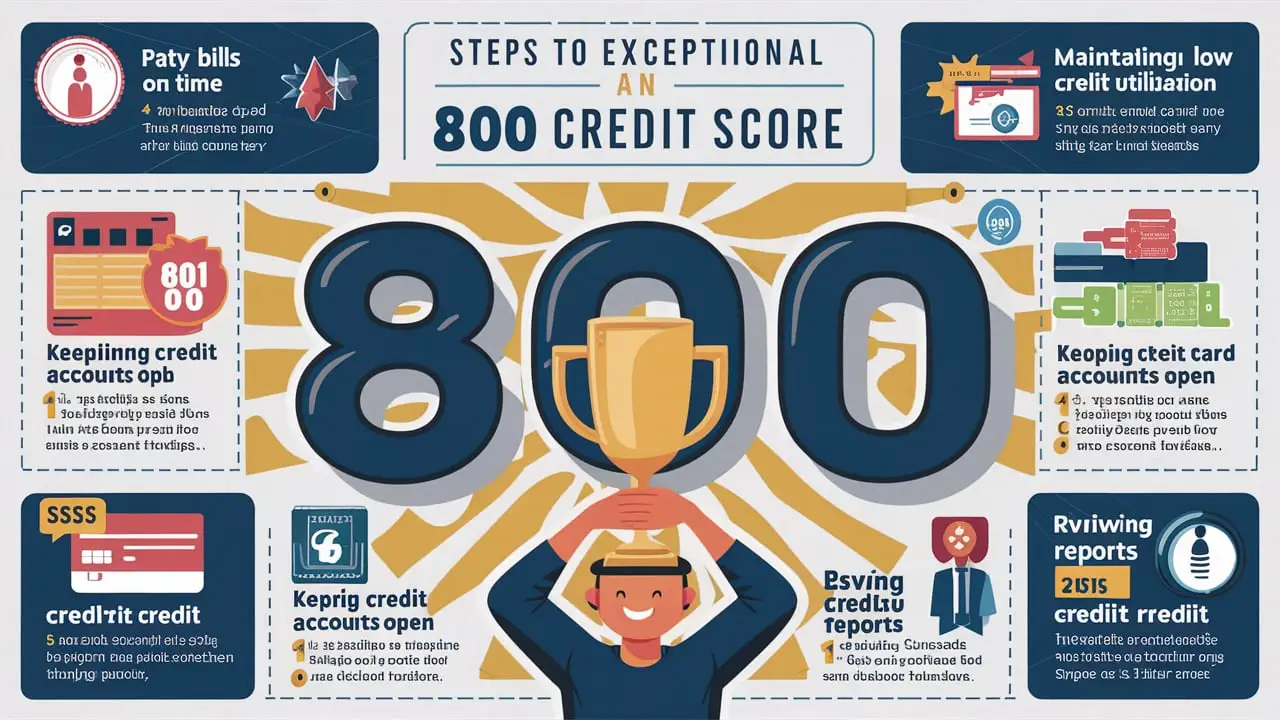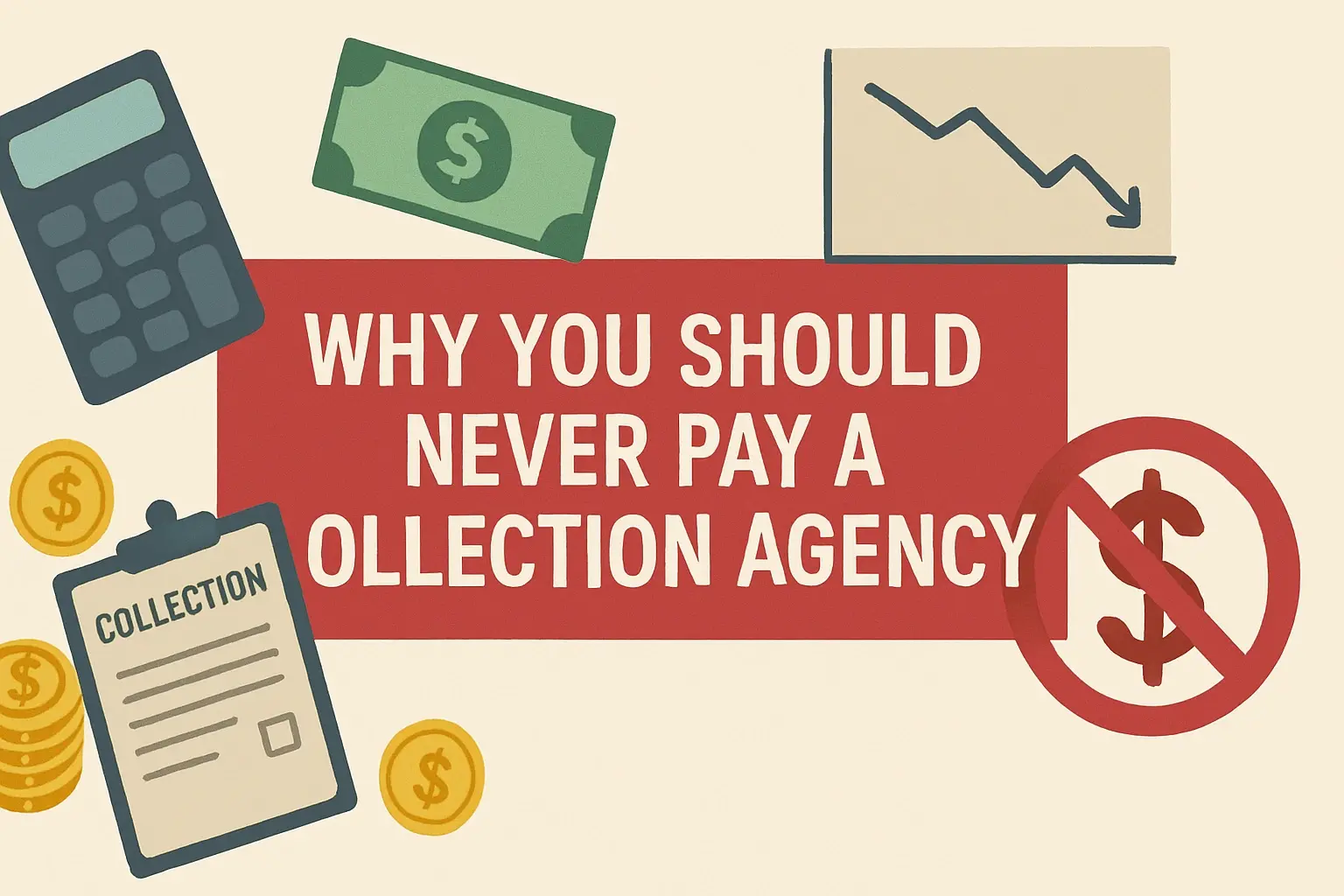-
Posted on: 01 Aug 2024

-
An 800 credit score is often seen as the holy grail of personal finance. It unlocks the best interest rates on loans, credit cards, and mortgages, saving you potentially thousands of dollars over your lifetime. While achieving this score may seem daunting, it's entirely possible with consistent effort and smart financial habits. This guide will walk you through the steps you need to take to reach and maintain an 800+ credit score.
Understanding Credit Scores
Before diving into strategies, it’s crucial to understand what a credit score represents and how it's calculated. Your credit score is a three-digit number that summarizes your creditworthiness. It predicts how likely you are to repay debts. The most common credit scoring model is FICO (Fair Isaac Corporation), and a score of 800 or higher falls within the "exceptional" range.
Key Factors Influencing Your Credit Score
The FICO score considers several factors, each weighted differently:
- Payment History (35%): This is the most important factor. Paying your bills on time, every time, is crucial.
- Amounts Owed (30%): Also known as credit utilization. How much of your available credit are you using? Keeping this low is vital.
- Length of Credit History (15%): The longer you've had credit accounts, the better.
- Credit Mix (10%): Having a mix of different credit accounts (e.g., credit cards, installment loans) can positively impact your score.
- New Credit (10%): Opening too many new accounts in a short period can lower your score.
Step-by-Step Guide to Achieving an 800 Credit Score
1. Prioritize On-Time Payments
As the most influential factor, consistent on-time payments are paramount. Late payments, even by a few days, can negatively impact your score. Set up automatic payments for all your bills to ensure you never miss a due date. If you struggle with budgeting, explore tools and techniques like the envelope method or budgeting apps to manage your finances effectively.
Tips for Ensuring On-Time Payments:
- Set up automatic payments: Automate payments from your checking account to your credit cards and other bills.
- Use calendar reminders: Set reminders on your phone or calendar for upcoming due dates.
- Consolidate due dates: Contact your creditors to see if you can align your due dates to better manage your payments.
- Don't ignore past-due notices: Address late payments immediately to minimize the impact on your credit score.
2. Keep Credit Utilization Low
Credit utilization is the amount of credit you're using compared to your total available credit. Experts generally recommend keeping your credit utilization below 30%, but aiming for 10% or lower is ideal for maximizing your credit score. For example, if you have a credit card with a $10,000 limit, try to keep your balance below $1,000, and ideally closer to $300.
Strategies to Lower Credit Utilization:
- Pay down your balances: The most direct way to lower your utilization is to pay down your credit card balances.
- Request a credit limit increase: Increasing your credit limit (without increasing your spending) automatically lowers your utilization. Be cautious, as this might tempt you to spend more.
- Open a new credit card: Opening a new credit card can increase your overall available credit, lowering your utilization percentage. Only do this if you can manage the new account responsibly.
- Make multiple payments per month: Instead of waiting until the due date, make several smaller payments throughout the month to keep your balance low.
3. Monitor Your Credit Report Regularly
You're entitled to a free credit report from each of the three major credit bureaus (Equifax, Experian, and TransUnion) annually through AnnualCreditReport.com. Review these reports carefully for any errors or inaccuracies. Disputing errors can help improve your credit score.
What to Look for in Your Credit Report:
- Incorrect personal information: Verify your name, address, and social security number are accurate.
- Unauthorized accounts: Look for any accounts that you didn't open.
- Late payments: Ensure reported late payments are accurate.
- Collections accounts: Check for any unfamiliar collection accounts.
- Public records: Verify the accuracy of any public records, such as bankruptcies or judgments.
4. Be Patient and Consistent
Building a strong credit history takes time. There's no quick fix or overnight solution. Be patient and consistent with your good credit habits. The longer you maintain a positive credit history, the better your score will become.
5. Avoid Applying for Too Much Credit at Once
Each credit application triggers a hard inquiry on your credit report, which can slightly lower your score. Applying for multiple credit cards or loans in a short period can signal to lenders that you're a higher risk borrower. Space out your credit applications to minimize the impact on your score.
6. Diversify Your Credit Mix (Carefully)
While not as crucial as payment history and credit utilization, having a mix of different credit accounts (e.g., credit cards, installment loans like auto loans or mortgages) can positively impact your score. However, don't take out loans just to diversify your credit mix. Only consider it if you genuinely need the loan and can manage it responsibly.
7. Consider Becoming an Authorized User
If you're just starting to build credit, consider becoming an authorized user on a credit card held by a responsible family member or friend. Their positive payment history will be reported to your credit report, helping you establish credit. However, their negative payment history can also negatively impact your score, so choose wisely.
8. Use Credit Monitoring Services
Credit monitoring services can help you track your credit score and alert you to any changes or potential fraud. Many services offer free trials or basic monitoring for free. Some even provide insights into the specific factors affecting your score and offer personalized recommendations for improvement.
9. Understand the Impact of Closing Accounts
Closing credit card accounts can have a negative impact on your credit score, especially if it reduces your overall available credit and increases your credit utilization. Consider keeping older accounts open, even if you don't use them frequently, as long as they don't have annual fees. If you have cards with annual fees that you no longer use, weigh the benefits of keeping them open versus the cost of the fee.
10. Be Mindful of Debt-to-Income Ratio
While not directly factored into your credit score, your debt-to-income (DTI) ratio is important for overall financial health and can influence lending decisions. Lenders will consider your DTI when you apply for a loan or mortgage. A high DTI can make it harder to get approved for credit or secure favorable interest rates. Aim to keep your DTI as low as possible.
Maintaining Your 800+ Credit Score
Achieving an 800 credit score is a significant accomplishment, but it's crucial to maintain it. Continue practicing the good credit habits that got you there: paying bills on time, keeping credit utilization low, and monitoring your credit report regularly. Don't become complacent, as even a few mistakes can negatively impact your score.
Potential Pitfalls to Avoid:
- Late payments: Even one late payment can lower your score.
- Maxing out credit cards: High credit utilization will significantly hurt your score.
- Opening too many accounts: Avoid applying for multiple credit cards or loans in a short period.
- Ignoring your credit report: Regularly monitor your credit report for errors or signs of fraud.
- Cosigning a loan for someone else: If the borrower defaults, you're responsible for the debt, which can damage your credit.










